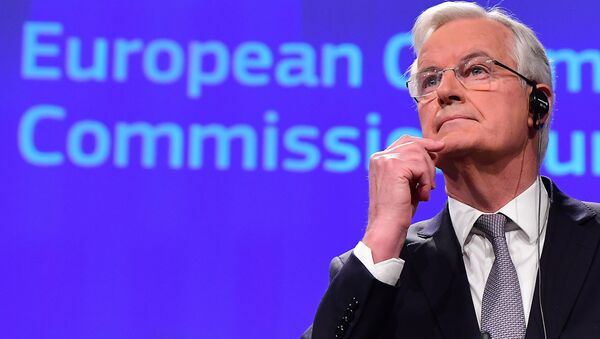Customs controls were introduced on the frontier in April 1923, following the establishment of the Irish Free State, which saw the island of Ireland split between what is now Ireland, in the south, and Northern Ireland, which is part of the United Kingdom. These controls were maintained, with varying degrees of severity, for 70 years, until 1 January 1993, when controls were withdrawn as part of the EU single market.
Indicating how seriously Irish Brexit concerns are being taken by EU, Michel Barnier will address joint Oireachtas sitting tomorrow. https://t.co/Wj58e8NrJ2
— John O'Brennan (@JohnOBrennan2) 10 May 2017
The issue of border controls has been extremely sensitive, in view of the so-called Troubles throughout the 20th century, which escalated in the 1960 with violence between republicans — who want a united Ireland — and nationalists, who want Northern Ireland to remain part of the EU.
There were police and army checkpoints throughout the Troubles, which were removed following the Good Friday Agreement, but their memory remains a sensitive issue.
The situation was exacerbated following the referendum, June 23, 2016, in which the UK as a whole voted to leave the EU, but Northern Ireland (along with Scotland) voted to remain. Now, Barnier — who leads the Brexit negotiations on behalf of the Commission and the remaining EU 27 — must enforce the Commission's guidelines, which clearly state the Irish border question must be resolved at an early stage of Brexit talks.
Taoiseach Enda Kenny tells #EPPgroup summit that #Brexit is bad for Britain,Ireland and Europe and bad for peace & prosperity #Dail #iestaff
— Juno McEnroe (@Junomaco) 11 May 2017
"The Union has consistently supported the goal of peace and reconciliation enshrined in the Good Friday Agreement in all its parts, and continuing to support and protect the achievements, benefits and commitments of the Peace Process will remain of paramount importance," the guidelines say.
"In view of the unique circumstances on the island of Ireland, flexible and imaginative solutions will be required, including with the aim of avoiding a hard border, while respecting the integrity of the Union legal order. In this context, the Union should also recognize existing bilateral agreements and arrangements between the United Kingdom and Ireland which are compatible with EU law."
'Beyond Brexit'
Addressing a meeting of the European People's Party, May 11, Taoiseach Kenny said the negotiations needed to be constructive in order to maintain trade and security over the frontier.
Addressing the @EPPGroup Bureau Meeting in Wicklow this am — will meet with @MichelBarnier later today. pic.twitter.com/mNXTblckTO
— Enda Kenny (@EndaKennyTD) 11 May 2017
"We cannot have a hard border as we had before. We believe it is crucial that the withdrawal of the United Kingdom is managed in a constructive and cooperative fashion. Ireland will compete for any opportunities that arise as a result of Brexit. Ireland offers many competitive advantages to companies. Europe's agenda goes beyond Brexit. It extends to a future of continued prosperity," Kenny said.
Welcoming @EndaKennyTD at @EPPGroup meeting at #Wicklow. @FineGael took the way of reforms & brought #Ireland back to growth: 5,2% last year pic.twitter.com/RwBl1M5h4v
— Manfred Weber (@ManfredWeber) 11 May 2017




